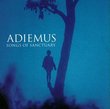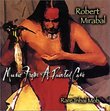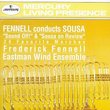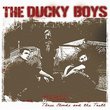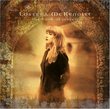| All Artists: Robert Schumann, Matthias Görne, Vladimir Ashkenazy Title: Matthias Goerne · Vladimir Ashkenazy ~ Schumann - Dichterliebe · Liederkreis op. 24 Members Wishing: 0 Total Copies: 0 Label: Decca Release Date: 3/17/1998 Genres: Pop, Classical Styles: Vocal Pop, Opera & Classical Vocal Number of Discs: 1 SwapaCD Credits: 1 UPC: 028945826523 |
Search - Robert Schumann, Matthias Görne, Vladimir Ashkenazy :: Matthias Goerne · Vladimir Ashkenazy ~ Schumann - Dichterliebe · Liederkreis op. 24
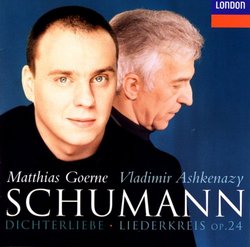 | Robert Schumann, Matthias Görne, Vladimir Ashkenazy Matthias Goerne · Vladimir Ashkenazy ~ Schumann - Dichterliebe · Liederkreis op. 24 Genres: Pop, Classical
The beautiful lyric baritone of Matthias Goerne is, we hope, going to be around for a long time, especially when it makes possible recordings such as this. The young lieder artist gives outgoing, exceptionally engaging cha... more » |
Larger Image |
CD DetailsSynopsis
Amazon.com The beautiful lyric baritone of Matthias Goerne is, we hope, going to be around for a long time, especially when it makes possible recordings such as this. The young lieder artist gives outgoing, exceptionally engaging characterizations of these songs, supported by the wonderfully pointed pianism of Vladimir Ashkenazy. The 1997 recording is vivid and well balanced. --Ted Libbey Similarly Requested CDs
|
CD ReviewsSchumann; Dicheterliebe / Liederkreis; Matthias Goerne / Ash Melanie Eskenazi | Cheam UK | 09/02/2000 (5 out of 5 stars) "Schumann; Dicheterliebe / Liederkreis; Matthias Goerne / AshkenazyI had to join in this discussion! I came rather late to Goerne's singing, this being only the second disc of his that I heard, and my impression was of a ravishingly beautiful voice overwhelmed by raucous, percussive, at times downright amateurish playing. I studied "Dichterliebe" as part of A level music, and I can remember playing parts of it just as Ashkenazy does here - without tenderness, and without any special feeling for the rise and fall of Schumann's phrases.I would love to ask Matthias Goerne why it is that he shops around for pianists so much, so early on in his career - does he feel that only the greatest pianists, already established as soloists, are good enough to play for him? Or is it simply that he is so wonderful (and, of course, he is) that pianists are queueing up to accompany him, and he, flattered, just takes them on? Perhaps it is simply the fact that there is just no pianist who can equal Goerne's singing - what a pity that there is no one around now to match Gerald Moore's poetic way of touching the piano - a way which would uniquely echo Goerne's own seriousness and sensitivity.Listening to this voice, and loving it as I do, I have to simply absent myself mentally when the piano takes over - difficult, but if you like what Goerne does with the songs then there is no option. Fischer-Dieskau is wonderful in his own way but I don't find his voice as beguiling as Goerne's, at least not in this music, and whilst Ian Bostridge has many fine moments I don't care for his sometimes only-approximate German and his seeming desire to create the impression that he's singing this music for the first time. Goerne, on the other hand, I find totally captivating; he conveys the sheer astonishment of joy in the first song of "Dichterliebe" with his slight, aching pressure on the words "wünderschönen" and "sprangen," and manages to make "Herze" sound as though only this poet has written of such a thing, and only this singer can know how it truly feels, yet without seeming to put excess strain on the individual words. In "Wenn Ich in deine Augen sehe" his every word is masterly - "...ich küsse deinen Mund," the crucial "Ganz und Gar gesund" and "himmelslust" are perfectly judged, the last just lingering long enough on the final syllable, and his "Ich liebe dich" is mesmerizing in its pathos. I have always thought that "Ich hab' Im Traum Geweinet" was the true test of a singer (and pianist) in this cycle, and so it proves here. Goerne sings this poignant song with fervour as well as lyrical ease, making dramatic contrasts between the touching "Mir träumt du verliessest mich" and the tremendous "...und noch immer strömt meine tranenflut." Even Ashkenazy seems to have been galvanized by the singer's depth of commitment here - this is one of the few moments during this cycle when I was not tempted to snort "I played it like this when I was 18!" I suppose the most -loved part of this cycle is the penultimate song's last verse, which shows Goerne at his best; without over - acting, he delineates all the pathos of "Ach, könnt ich dorthin kommen ..." and demonstrates just how to give enough pressure on words such as "selig", and just enough weight to phrases such as "Ach, jenes Land der Wonne..." so as to wring our hearts without wringing his hands. And that's just "Dichterliebe..." I found "Liederkreis" equally compelling, especially in "Ich wandelte unter den Bäumen" and the final song, in which those telling phrases "du süsses, süsses Lieb' in fernem land" and "...und flüstern mit wehmut und Liebeshauch" are sung with incomparable warmth and nobility of line. I cannot understand the reviewer who so disliked this singer - he should go back to him again, as I did after the first time around!" Goerne is not Souzay, Souzay is not Goerne Izolda | North Haven, CT United States | 04/08/2000 (5 out of 5 stars) "As many as two (out of three!) reviewers on this page refer potential buyers of Goerne's Dichterliebe/Liederkreis op.24 to the marvellous recordings of Gerard Souzay. Souzay deserves a special place among the greatest Lieder interpreters and it is wonderful that his name has been called here, on the page that is very likely to be read by many young Lieder fanatics. From the musical point of view, however, I was surprised to see Souzay's name juxtaposed with Goerne's. The French baritone's voice and that of Goerne are two different worlds and shouldn't be compared, especially for the sake of a counter-recommendation. Souzay's is a light, almost tenor-like baritone, while Goerne's is much deeper and darker as well as more powerful. Goerne is a wonderful Lieder singer, a true successor of DF-D, with a voice - I dare to say - much more beautiful than his famous teacher's. So much about the voices. As to the interpretations, the listeners will find here as much to enjoy as they will with Souzay (comparing both recordings may bring further rewards!). I do not want to dwell upon the differences between these two interpretations, but they (i.e. differences) are quite predictable considering the fact that we are dealing with such different voices. There is still one more problem: Souzay's Schumann recital on "Philips" (by the way, available at "Amazon" - "Early years - Beethoven, Brahms, et al: Lieder/Souzay) contains "Liederkreis" op. 39, Goerne's - op. 24 (Goerne recorded op. 39 with Eric Schneider. I do not know of any recording of op. 24 by Souzay), so when we are talking about Goerne's and Souzay's Schumann here, we are talking about "Dichterliebe". Every Lieder fan has his favorite recordings. If, choosing between these two interpretations I am rather inclined to yield the palm to Souzay, it is mainly because his recording is a document left by an artist who does not perform any more, while Goerne - as some of his Lieder singing colleagues - can re-record this cycle in later phases of his career. This is, of course, to say that I enjoyed them both and can't really find any good arguments to help myself - and others - choose between one or another. And I don't have to - I play them when I want to hear them and I apply the same "playing strategy" to many other singers. One of my top favorites is Olaf Bar and his "Dichterliebe" and "Liederkreis op. 39" on EMI 1986. If you like historical recordings and want your tears to flow, try the Danish tenor Aksel Schiotz with Gerald Moore at the piano ("Dichterliebe" from 1946 on Pearl together with samples of Grieg, Handel, Mozart, Buxtehude and Bach from 1940-46). And if you want to keep up with new releases, Bryn Terfel's fantastic Schumann recital just appeared on a generously filled Deutsche Grammophon disc (Liederkreis op. 39 and other songs - almost 78 minutes of exquisite Lieder singing!)." Please, please, please ignore the bad reviews Melanie Eskenazi | 06/26/2000 (5 out of 5 stars) "I read the negatives reviews of this CD with incredulity! Matthias Goerne has one of the most beautiful male voices I have ever heard. It is indeed much richer than the fabulous Dietrich Fischer-Dieskau, whose recording of Dichterliebe I also greatly enjoy. I bought this CD as I am currently learning and singing the Dichterliebe cycle. Having discussed this CD with my singing tutor, who studied at the Royal College of Music in London, we both came to the conclusion that this voice was beautiful and the interpretation very fine.While I suppose it may not move you to tears it does have a great emotional impact, if MG does use a lower transposition for 'Ich grolle nicht' it is entirely forgiveable, as the high A of the original key is not really in the range of a baritone. As a tenor I find this leap hard and am thinking of following Goerne's example.The Liederkreis is also very fine and certainly equals my favourite performance by Sir Peter Pears. Of course as a German his pronounciation is natural and accurate, although some times not entirely clear. Nevertheless if you're a newcomer or an expert in these beautiful songs this is a most satisfactory and beautiful recording."
|

 Track Listings (25) - Disc #1
Track Listings (25) - Disc #1